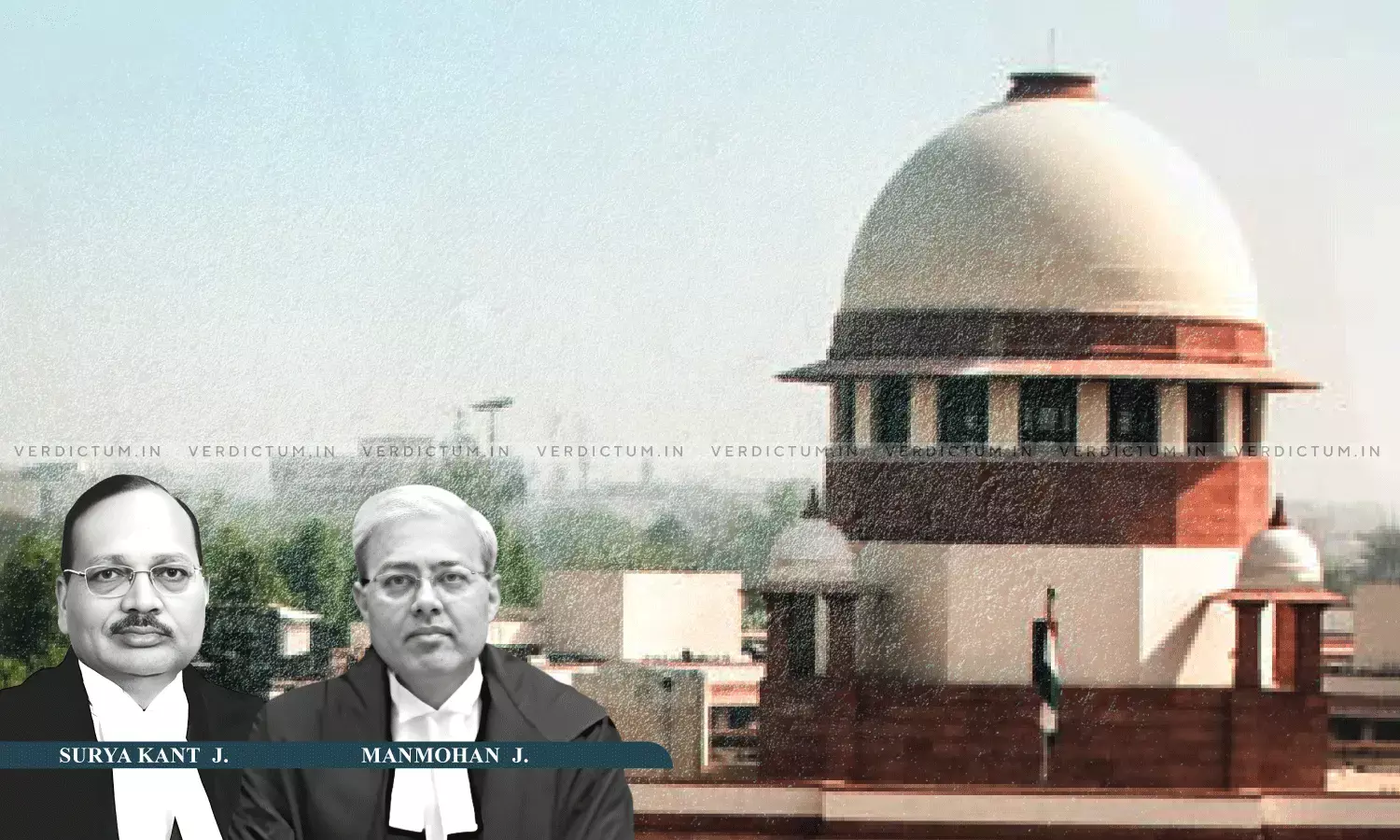Apex Court Asks Petitioner Seeking Application Of POSH Act To Political Parties To Approach Election Commission
The Supreme Court today directed a petitioner seeking the application of the Sexual Harassment of Women at Workplace (Prevention, Prohibition, and Redressal) Act, 2013 (POSH Act) to political parties to approach the Election Commission of India (ECI) first.
The Court disposed of the Public Interest Litigation (PIL) filed by Advocate Yogamaya M G, granting her the liberty to return to the Court if the grievance remains unaddressed.
The Bench of Justice Surya Kant and Justice Manmohan said, "The petition is disposed of with liberty to the petitioner to approach the competent authority (Election Commission of India). In case the petitioner's grievance is not effectively addressed, she shall be at liberty to approach a judicial forum in accordance with law."
During the hearing, Senior Advocate Shobha Gupta appeared for the petitioner. She argued that the POSH Act's definition of "workplace" was inclusive and extended to political entities. Gupta emphasized that unorganized sectors, including those resembling political parties, are covered under the Act via local committees.
The Bench referred to a Kerala High Court's judgment holding that political parties are not bound by the POSH Act, a decision that has not been challenged.
The Court highlighted the need for the petitioner to involve the ECI, the authority overseeing political parties under Section 29A of the Representation of the People Act, 1951.
Gupta acknowledged this procedural aspect, agreeing to approach the ECI suggested by the Court. "We have to amend the writ petition and make ECI also a party; the Union of India is there," she submitted.
Justice Kant said, "Probably, the Union of India may or may not be in a position to do anything... Why don't you do one thing? The competent authority will be ECI. Why doesn't the petitioner first approach the ECI? Give them some reasonable time to think over it, and if nothing happens, our doors are always open."
Accordingly, the Court disposed of the petition while granting liberty to the petitioner to approach the ECI.
The petitioner, a practicing advocate and member of the Supreme Court Bar Association, in the PIL contended that political parties must follow the procedures outlined in the POSH Act to safeguard women's fundamental rights under Articles 14, 15, 19, and 21 of the Constitution. The PIL filed through AoR Deepak Prakash emphasized the establishment of Internal Complaints Committees (ICCs) in political parties, following the Supreme Court's directives in Vishaka v. State of Rajasthan (1997).
The Petition argued that the Act's expansive definitions of "employee" and "employer" encompass individuals working in political parties, whether or not they receive remuneration. Political party workers should therefore be protected under the POSH framework. It highlighted inconsistent implementation of ICCs in political organizations. For instance:
1. CPI(M) has established ICCs with external members.
2. The Aam Aadmi Party lacks transparency regarding its grievance mechanisms.
3. BJP and Congress rely on disciplinary committees or state-level offices without adequate ICC structures.
The PIL pointed to systemic challenges that deter women from active political participation, underscoring the need for robust grievance redressal mechanisms. It sought a "reading down" of the definitions of "employer" and "workplace" in Sections 2(g) and 2(o) of the POSH Act to explicitly include political parties. This approach would align the Act's application with its primary objective of creating safe workplaces for women.
The Petition warns that excluding political parties from the Act's purview undermines critical provisions, such as:
1. Section 3, which prohibits sexual harassment at workplaces.
2. Section 4, which mandates ICCs.
3. Section 19, which outlines employer duties to prevent harassment.
The PIL contended that political parties play a pivotal role in shaping the nation's democratic framework. With over 2,764 registered political parties, the lack of standardized mechanisms to address sexual harassment poses a significant barrier to women’s participation in politics.
Prayers Before the Court:
The Petitioner seeks the following:
1. A declaration that political parties are bound to adhere to the POSH Act.
2. A directive to establish ICCs within all political parties.
3. Judicial reading down of the Act’s provisions to ensure inclusivity and alignment with its objectives.
Cause Title: Yogamaya MG v. Union of India [W.P.(C) No. 816/2024; Diary No. 48246/2024]




